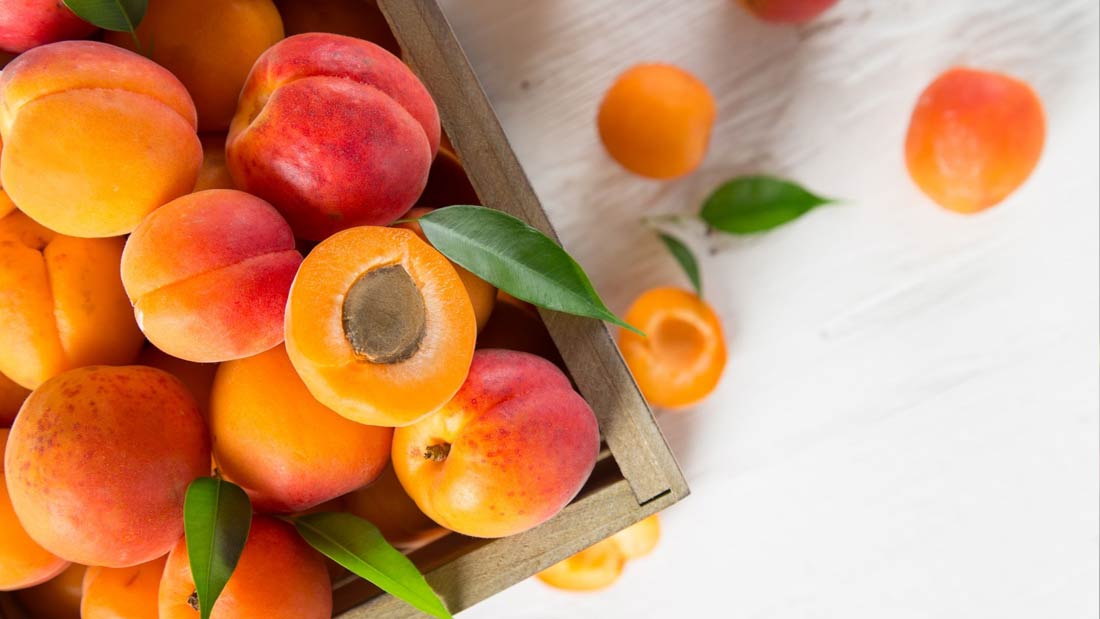Apricots

Sweet, jammy, lovely apricots – they have a lot of nutrients to offer and are a delicious health booster.
Apricots originally come from China but have a long history of cultivation all over the world. Their close relatives are other stone fruits, such as plums, cherries or almonds.
Apricot nutrition
Three apricots provide you with 40 per cent of your daily vitamin A requirement in the form of beta-carotene (a molecule that your body turns into vitamin A) and they also pack a healthy amount of vitamin C (18 per cent of the recommended daily intake) and small doses of B vitamins and minerals, such as calcium, magnesium and iron.
Three apricots contain two grams of fibre and 1.5 grams of protein and, despite their sweetness, have lower sugar content than peaches and nectarines. The fibre content means their natural sugars are absorbed slower, providing healthy energy, and it also feeds the good gut bacteria, supporting your digestive and immune systems.
Health protectors
Apricots are great sources of antioxidants called polyphenols and carotenoids, some of which also provide the pigments responsible for those yellow and orange hues so characteristic for these fruits. Polyphenols and carotenoids not only protect your body from everyday damage caused by free radicals, they also reduce your risk of cancer, heart disease and age-related health issues.
Organic fruits contain more antioxidants than conventional ones and the same applies to dried fruit. In tests comparing both carotenoids and polyphenols in organic and non-organic apricots, the organic ones came out on top!
Dried fruit
Apricots have lower water content compared to many other fruits and so are relatively easy to dry and because they taste great, are hugely popular. Some are directly grown to be dried.
When apricots (or any fruit for that matter) are treated with sulfur dioxide (E220) during the drying process, it preserves their orange colour. This sulphite is accepted as safe unless you’re sensitive to it – and many people are! Asthma sufferers are particularly likely to react to sulphur dioxide, which can trigger an attack. In others, it can cause asthma-like symptoms such as wheezing and difficulty in breathing. If you’re affected, the only solution is to avoid sulphur dioxide so always check the ingredients!
On the other hand, unsulphured apricots go naturally brown when they’re dried but are safe to eat by everyone, including asthma sufferers. Even better, organic dried apricots offer plenty of antioxidants and vitamin A and none of the chemicals that conventional apricots may be sprayed with.
When fruit is dried, the relative concentration of nutrients is increased, so just six pieces of dried apricots provides 10-20 per cent of your daily iron requirement.
Apricots year round
Fresh apricots make a great snack or smoothie ingredient but they work just as well in salads, finely diced in salsas, or sliced on top of cakes. Dried apricots are a superb year-round staple, providing healthy energy, iron, fibre and antioxidants – so why not make them your regular snack?




